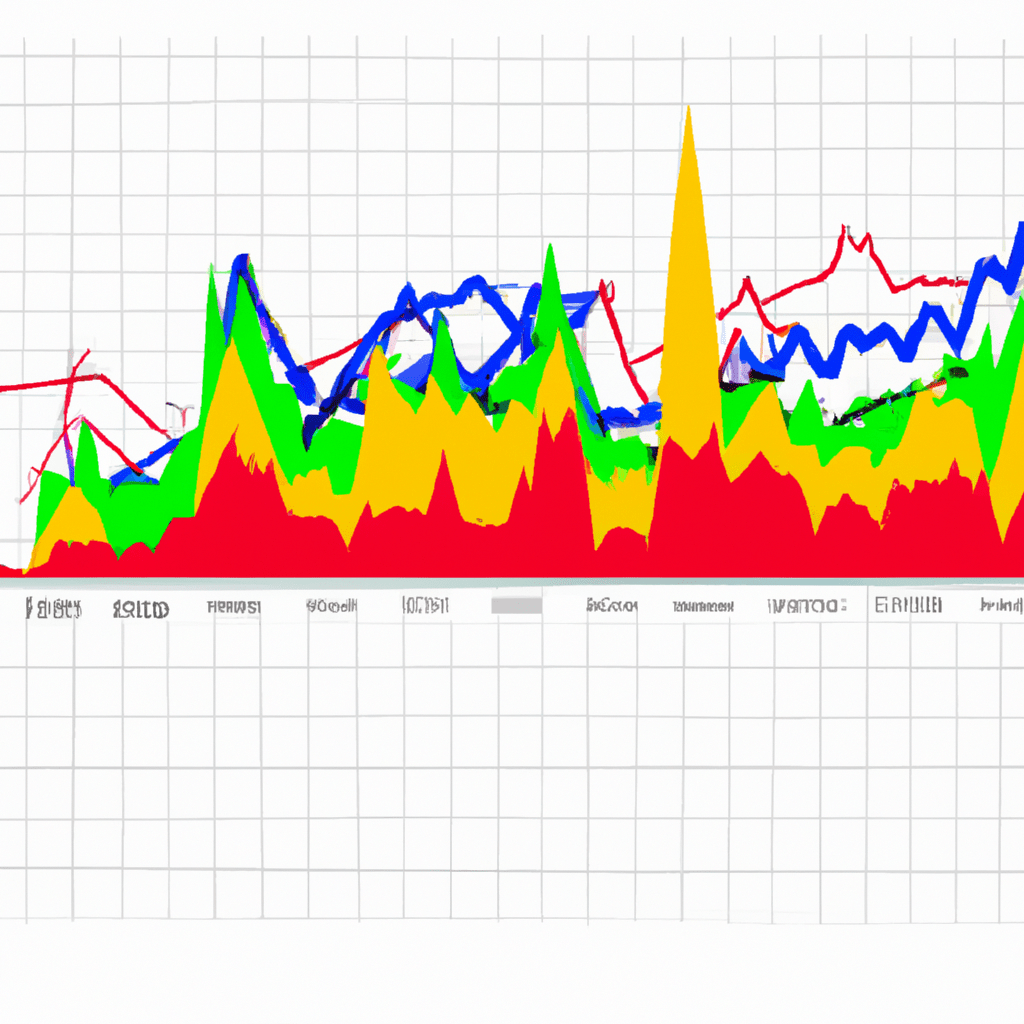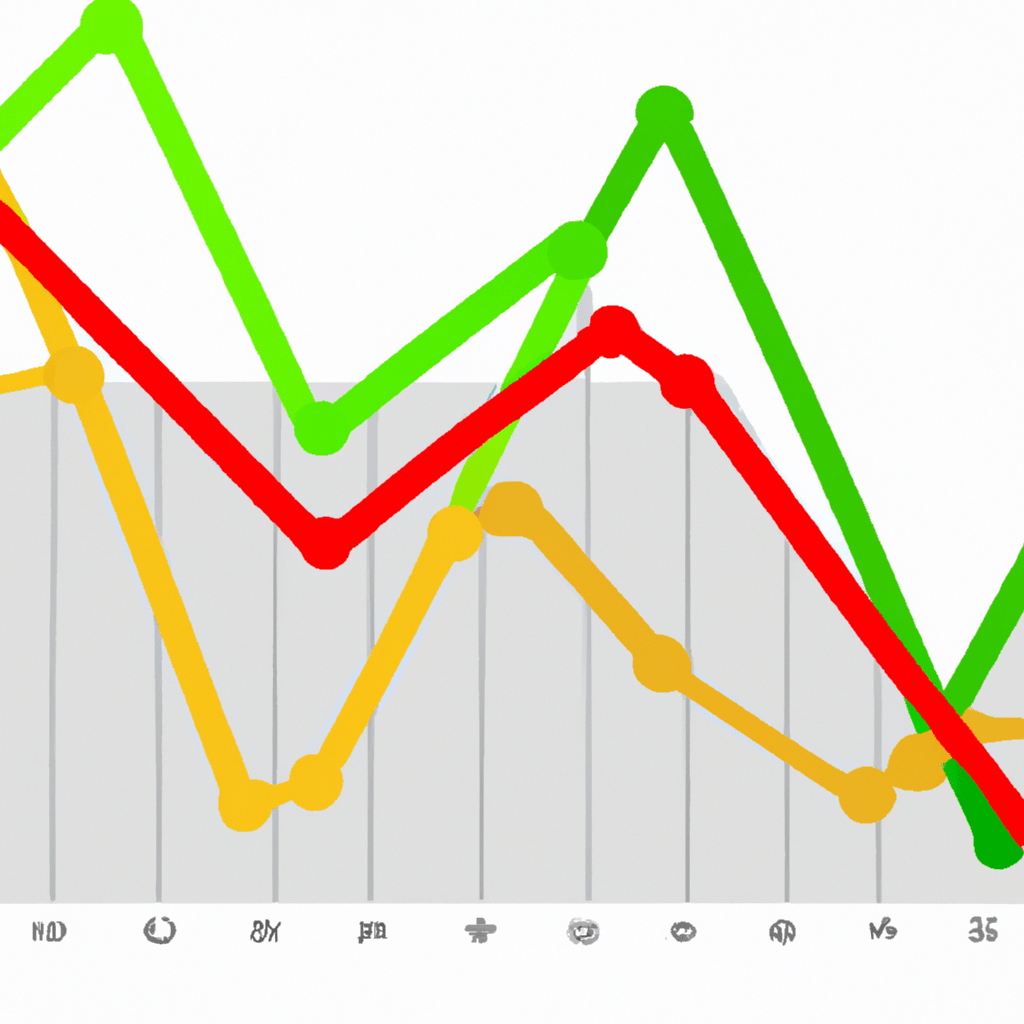In today's ever-evolving financial landscape, understanding the intricacies of the financial market is crucial for investors and traders alike. One essential tool that guides investment decisions and reflects market trends is the Financial Market Index. This comprehensive guide aims to demystify the world of stock indexes, exploring popular global indices and their impact on investment decisions. From understanding the basics of indices in trading to delving into the six sectors indices that measure key industry performance, this article will equip readers with valuable insights. Additionally, we will discuss how stock indexes impact investment decisions and how they reflect market trends and investor sentiments. So, let's embark on this journey to unravel the power of financial market indexes and their significance in today's dynamic investment landscape.
1. “Understanding Financial Market Index: A Comprehensive Guide”

Understanding Financial Market Index: A Comprehensive Guide
Financial market indexes play a crucial role in tracking the performance of various financial markets and providing valuable insights into the overall health and direction of the economy. In this comprehensive guide, we will delve into the world of financial market indexes, explore popular stock indexes, discuss the concept of indices in trading, and shed light on the six sectors indices.
A financial market index is a statistical measure that represents the performance of a specific group of stocks or other assets within a market. It provides investors with a benchmark to assess the overall movement and trends of a particular market or sector. These indexes are typically calculated using a weighted average of the prices of the constituent stocks or assets. They serve as a reference point for traders, investors, and financial analysts to gauge market performance and make informed decisions.
World stock indexes are among the most widely followed financial market indexes. They track the performance of stocks from different countries and regions, providing a global perspective on market trends. Popular stock indexes include the S&P 500, Dow Jones Industrial Average (DJIA), and the Nasdaq Composite in the United States, the FTSE 100 in the United Kingdom, and the Nikkei 225 in Japan. These indexes represent a diverse range of companies and sectors, making them reliable indicators of overall market performance.
Indices in trading refer to the groupings of stocks or assets based on specific criteria, such as industry sector or market capitalization. They allow investors to gain exposure to a particular segment of the market without having to buy individual stocks. The six sectors indices represent different sectors of the economy and are commonly used to analyze the performance of specific industries. These sectors include technology, healthcare, consumer goods, financials, industrials, and energy. By tracking the performance of these sectors, investors can gain insights into the underlying strength or weakness of various industries.
In conclusion, understanding financial market indexes is essential for anyone involved in the stock market or other financial markets. These indexes serve as valuable tools for assessing market performance, tracking trends, and making informed investment decisions. World stock indexes, such as the S&P 500 and FTSE 100, provide a global perspective on market movements. Additionally, indices in trading, including the six sectors indices, allow investors to analyze the performance of specific industries. By familiarizing oneself with these concepts, individuals can navigate the complex world of financial markets with more confidence and knowledge.
2. “Exploring World Stock Indexes: An Overview of Popular Global Indices”

Exploring World Stock Indexes: An Overview of Popular Global Indices
In the ever-evolving landscape of the financial market, understanding the significance and functionality of world stock indexes is paramount. These indexes serve as crucial indicators of the overall health and performance of global markets, providing investors with valuable insights and benchmarks for their investment decisions. In this section, we will delve into the realm of popular global stock indexes, shedding light on their purpose, composition, and the sectors they represent.
What is an Indices in Trading?
Before we delve into the specifics of popular global stock indexes, let's first understand what an index is in the context of trading. Simply put, an index is a statistical measure that represents the value of a specific segment of the stock market. It is essentially a composite of selected stocks that allows investors to track the performance of a particular market or sector. An index acts as a barometer, reflecting the collective sentiment and performance of the underlying stocks it comprises.
Financial Market Index: A Brief Overview
A financial market index, also known as a stock market index, is a crucial tool for investors seeking to gauge the overall performance and direction of a specific market or the entire stock market. It serves as a benchmark against which individual stocks or portfolios are compared, providing valuable insights into the market's behavior, trends, and risk appetite. Financial market indexes are typically calculated using a weighted average of the prices of a select group of stocks.
Popular Stock Indexes from Around the World
1. S&P 500: The S&P 500 index, often referred to as the Standard & Poor's 500, is one of the most widely recognized and followed stock market indexes in the United States. Comprising 500 large-cap companies across various sectors, it represents approximately 80% of the total U.S. stock market capitalization. The S&P 500 offers investors a snapshot of the overall performance of the U.S. stock market and is often considered a leading indicator of the country's economic health.
2. Dow Jones Industrial Average (DJIA): The DJIA is another prominent stock market index in the United States. Unlike the S&P 500, which represents a broader market, the DJIA consists of just 30 large, publicly traded companies. This index is often regarded as a gauge of the performance of blue-chip stocks and is closely watched by investors and financial experts worldwide.
3. FTSE 100: Moving across the Atlantic, the FTSE 100 represents the 100 largest companies listed on the London Stock Exchange, based on market capitalization. It serves as a critical indicator of the U.K. stock market's performance, reflecting the overall health and direction of the British economy.
What are the Six Sectors Indices?
Stock market indexes can also be categorized based on the sectors they represent. These sector-specific indexes allow investors to gauge the performance of specific industries or sectors within an economy. The six primary sectors commonly referred to in the stock market are:
1. Technology
2. Financials
3. Consumer Discretionary
4. Healthcare
5. Industrials
6. Energy
Each sector index reflects the performance of companies operating within that particular industry, providing investors with a more granular understanding of sector-specific trends and opportunities.
In conclusion, understanding the significance of financial market indexes and popular global stock indexes is crucial for investors. These indexes serve as vital tools for evaluating market trends, tracking performance, and making informed investment decisions. Whether it is the S&P 500, DJIA, or FTSE 100, each index represents a unique segment of the market, offering valuable insights into the health and direction of the economy. Additionally, sector-specific indexes allow investors to analyze industry-specific trends, enabling them to identify potential opportunities within specific sectors. By staying informed about these indexes, investors can navigate the complex world of financial markets with greater confidence and knowledge.
3. “Demystifying Indices in Trading: What They Are and How They Work”

When it comes to trading in the financial markets, understanding and analyzing various indices is crucial for investors and traders alike. Indices, also known as indexes, play a vital role in providing a snapshot of the overall performance of a specific market or sector. In this section, we aim to demystify indices in trading by exploring what they are and how they work.
At its core, a financial market index is a statistical measure that represents the value of a specific group of stocks or other assets. It serves as a benchmark or reference point, allowing traders and investors to evaluate the performance of a particular market or sector. These indexes are usually calculated using a weighted average of the constituent assets' prices or market capitalizations.
World stock indexes are widely used and provide a comprehensive view of the global equity markets. These indexes include popular stock indexes such as the S&P 500, Dow Jones Industrial Average (DJIA), and the Nasdaq Composite in the United States, as well as international indexes like the FTSE 100 in the UK, DAX 30 in Germany, and Nikkei 225 in Japan.
Understanding what an index represents is crucial. For instance, the S&P 500 index represents the performance of 500 large-cap U.S. companies listed on major stock exchanges. The DJIA is made up of 30 large, publicly traded companies, mainly from the industrial sector. The Nasdaq Composite focuses on technology and growth-oriented companies.
What is an index in trading? It is a tool that helps traders track the overall market sentiment, identify trends, and make informed investment decisions. By analyzing the movement of an index, traders can gauge the market's health and make predictions about future price movements.
Indices are also divided into sectors, which categorize the constituent companies based on their industry or business focus. The six sectors commonly used in indices are technology, healthcare, consumer discretionary, financials, industrials, and energy. These sector indices allow traders to assess the performance of specific industries or sectors within the broader market.
For example, the technology sector index may include companies like Apple, Microsoft, and Google, while the healthcare sector index could consist of pharmaceutical and biotechnology companies. By monitoring the performance of sector indices, traders can identify areas of strength or weakness within the market and adjust their investment strategies accordingly.
In conclusion, financial market indices provide valuable insights into the performance of specific markets or sectors. They serve as essential tools for traders and investors, helping them understand the overall market sentiment and make informed decisions. By analyzing world stock indexes and sector indices, traders can gain a deeper understanding of market trends and capitalize on investment opportunities.
In conclusion, understanding the financial market index is crucial for anyone interested in trading and investing. This comprehensive guide has provided an overview of popular global stock indexes, demystified indices in trading, and explained how they work. By familiarizing ourselves with these concepts, we can make more informed decisions and navigate the complex world of finance with greater confidence. Whether it is the S&P 500, FTSE 100, or Nikkei 225, each index represents a unique snapshot of the market and allows us to gauge the performance of specific sectors or regions. As we continue to delve into the world of financial markets, it is important to remember that indices are not only indicators of market health but also powerful tools for portfolio diversification and risk management. By leveraging the insights provided by these indexes, we can navigate the ever-changing landscape of the financial market and potentially achieve greater financial success.





